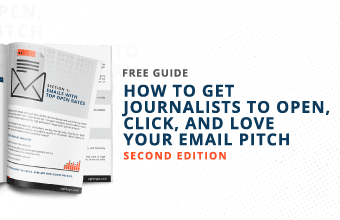Given all the efforts by PR pros to get media coverage for their clients or organizations, it’s surprising what happens sometimes when journalists reach out for assistance. Phone calls aren’t returned, or if they are, the response is too slow to do the journalist any good. It seems like a no-brainer: If a reporter wants information or access to an expert, you should jump at the chance, right? Yet the opposite happens more often than you might think. The journalists I’ve interviewed often list poor responsiveness as one of their biggest pet peeves about PR.
This can have repercussions that go far beyond one story, because reporters are less likely to go back to PR pros who don’t return calls. Conversely, a reputation for timely response is a good way to forge lasting relationships with journalists.
How do you establish that reputation? Here are some pointers:
Be available when press releases go out. I’ve seen it myself all too often: I receive a press release with a PR contact at the bottom, but when I call, the person is out for the day or even on vacation. Always clear time to field the inevitable media queries, or at a minimum designate an alternative contact. And don’t assume that the news is too insignificant to draw those queries: You never know what might catch a reporter’s interest. I can understand a PR person not being available if the news is tied to a trade show or conference they’re attending, but even then, you should make provisions for assisting journalists who are not at the same event.
Designate a backup. You should do this even if you don’t have a press release in the works: Appoint a backup who can handle media queries in case you’re not available. Include the backup’s contact info in your message greeting. And if you plan to be away from email for an extended time, create an auto-reply that indicates who should get queries in your absence.
Return calls even if you can’t help. This is a big one: A journalist needs your assistance to set up an interview, but the source isn’t available. Don’t leave them hanging. Call and explain the situation. Let them know you’re working on it, or just tell them you’re not in a position to help. If you want to score bonus points, suggest other organizations they might want to contact.
Don’t ignore the smaller outlets. If the call comes from an obscure media outlet or a freelancer, it may be tempting to let it go in favor of more-recognized names. But that’s a good way to alienate people whose attention you may want in the future. That assistant editor at Linoleum Times could be tomorrow’s EIC at House Beautiful. And I’ve spoken with many freelancers for A-list outlets who supplement their work by writing for smaller magazines or websites. They will remember the PR pros who came through for them — and the ones who didn’t.
Respect reporters’ deadlines. This is most important of all. If you’re dealing with reporters for newspapers or wire services, failing to respond within a few hours can kill your chances of getting coverage. Even weekly or monthly publications may be doing online news where fast response is crucial. If the reporter has a tight deadline, they’ll let you know when they leave the message. Respect that deadline—and beat it if you can.









